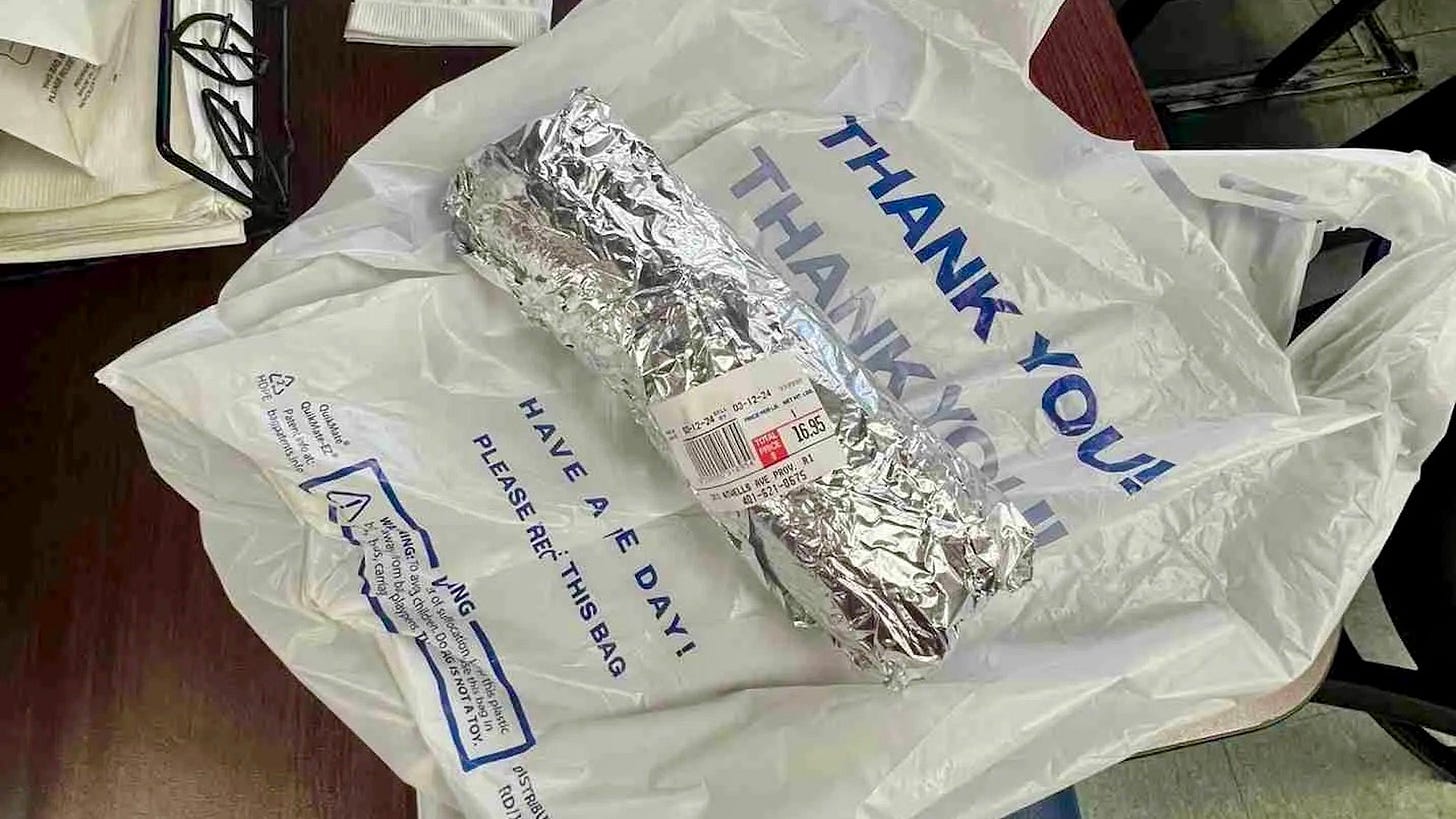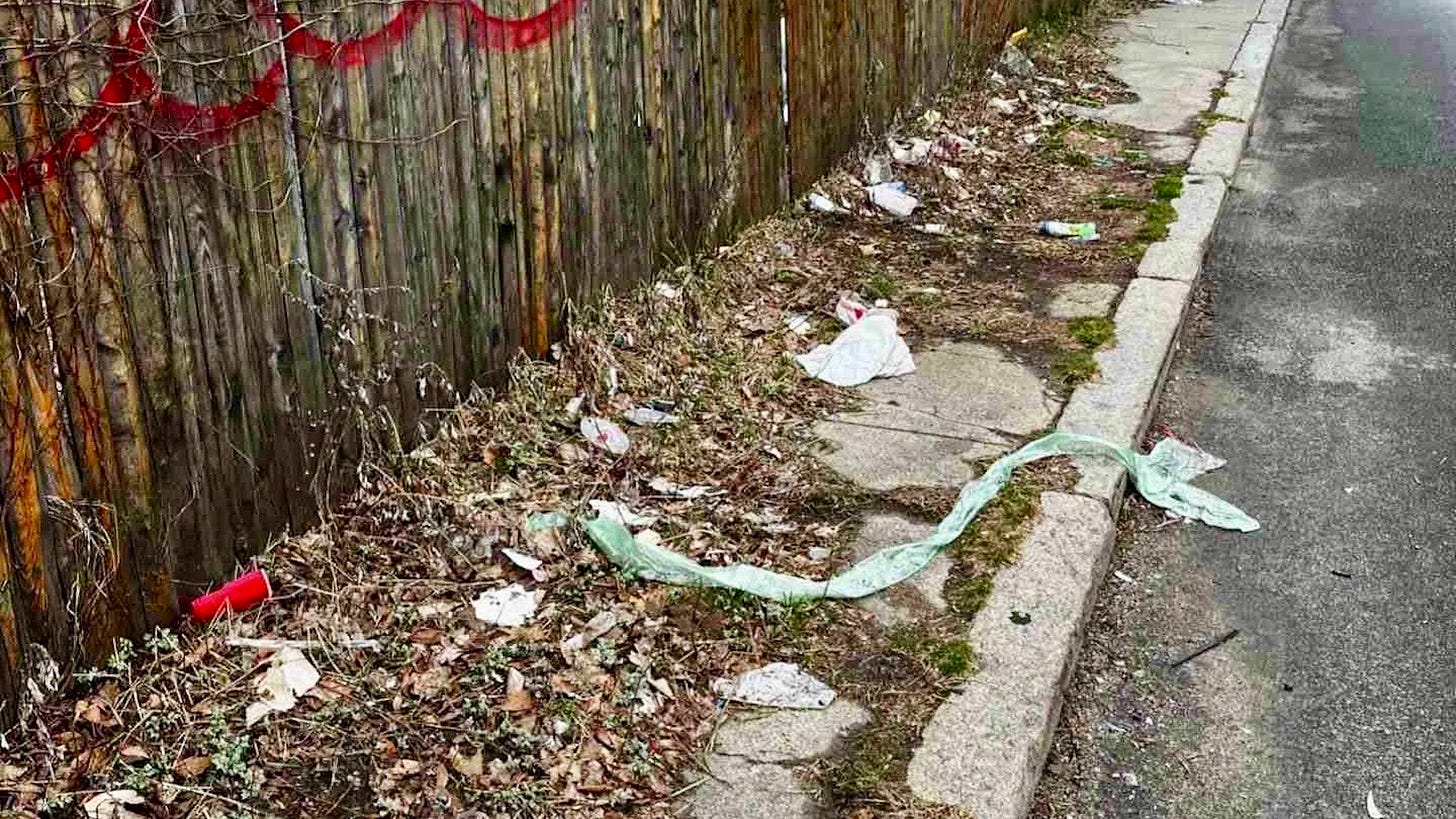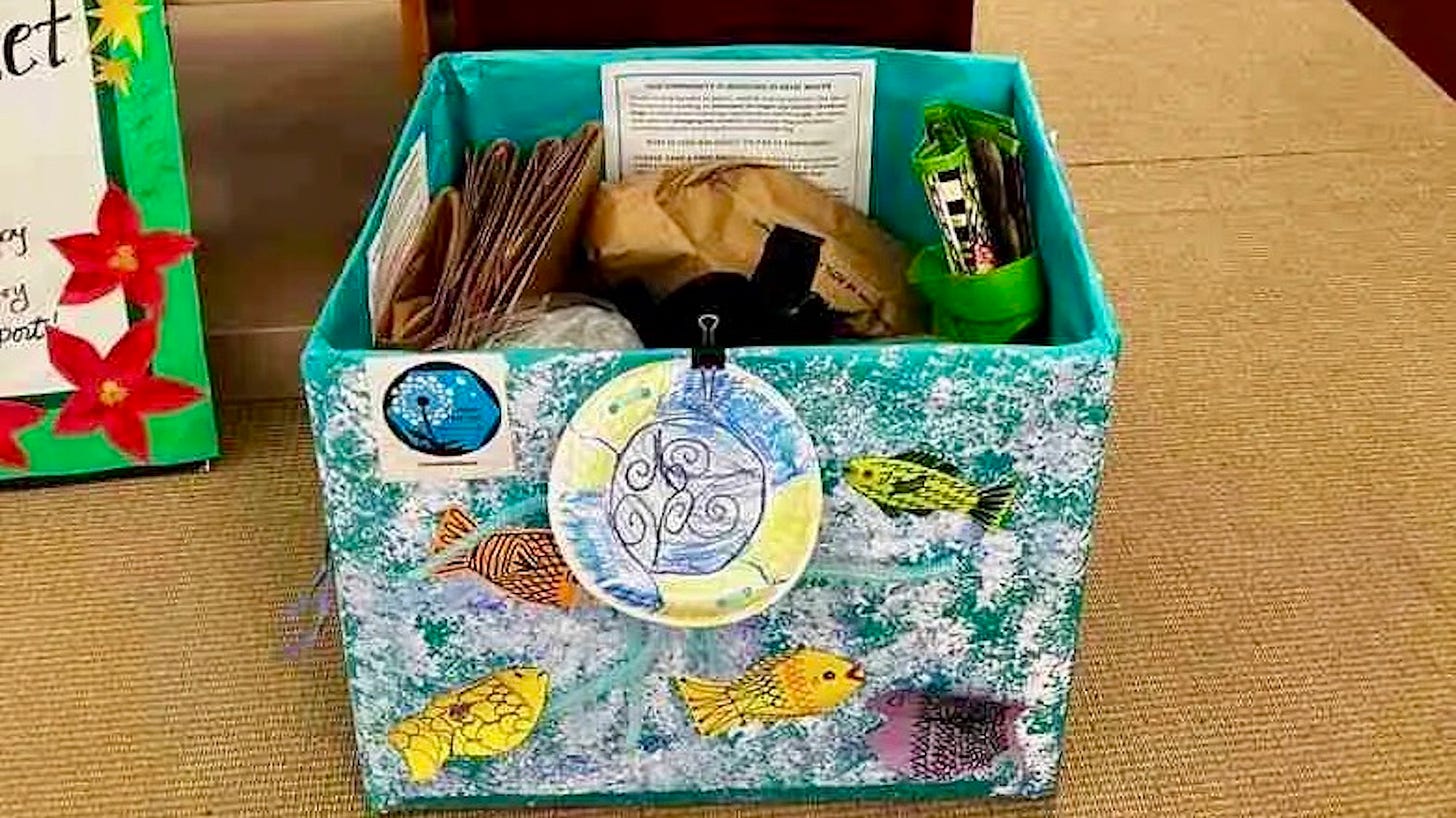Providence’s lack of plastic bag ban enforcement
"The only plastic bags permitted under the ordinance are those used for produce, newspapers, and laundry. But walk into many stores in Providence... and you’ll surely notice plastic bags."
The following has been reprinted from The Providence Eye, with permission.
On January 1, 2024, The Plastic Waste Reduction Act went into effect, making Rhode Island the twelfth state in the U.S. to ban single-use plastic bags. This may not seem like news, as 18 of Rhode Island’s 39 jurisdictions, including Providence, already had existing bag bans in place. Providence’s plastic bag ban, signed into law in May 2019, was slow to gain momentum. The COVID-19 pandemic stalled enforcement of the ban, as retailers, concerned about the spread of the COVID-19 virus through the distribution and use of multi-use bags, opted to stick to single-use plastic. This, in turn, led the City to delay enforcement of the ordinance and allowed businesses to apply for temporary exemptions, primarily so stores and restaurants could drain any excess inventory of plastic bags. As of October 22, 2020, however, exemptions are no longer permitted. Now, nearly five years after the ordinance was passed, has the ban been successful, and are there any real measures for enforcement?
Despite warnings from the Department of Public Works, reminding residents that plastic bags are not permitted in recycling loads, the use of plastic bags in Providence persists. The only plastic bags permitted under the ordinance are those used for produce, newspapers, and laundry. But walk into many stores in Providence or peek into your neighbor’s recycling bin, and you’ll surely notice plastic bags. Until the State-wide ban passed in January, Providence’s Office of Sustainability was in charge of enforcing the ban. The first violation resulted in a warning to the retail establishment, with subsequent violations within the same year resulting in fines–$50 for the first offense and $100 for the second offense and all subsequent offenses, with revenue from these citations going towards a fund for furthering community education and outreach on recycling matters. A public records request to the City of Providence revealed that since the ban was implemented in 2019, only 13 businesses received warnings, and there were zero citations issued for violations of the ban. Now, according to the Office of Sustainability, the City will defer to the Rhode Island Department of Environmental Management (RIDEM) for all enforcement efforts following the State ban.
The State ban stipulates that any retail sales establishment that does not comply with the plastic bag ban will be subject to administrative penalties–$100 for the first violation in a calendar year, $200 for the second violation, and $500 for the third and any subsequent violations in the same year. The law then opaquely describes the entities responsible for enforcement, tasking municipalities with investigating and responding to complaints and “engaging in any other enforcement of this section as they deem appropriate.” The municipality can then refer to the RIDEM for “further enforcement,” after which the Department may “remand the referral back to the municipality for further enforcement at the municipal level.” If issued an administrative penalty, retail sales establishments may file an appeal.
In addition to the potential State penalties for businesses, the Providence Department of Public Works can fine households for contaminated recycling. According to the Providence DPW, disposing of trash or non-recyclable materials in a residential recycling bin can result in a minimum fine of $50 to the property owner. In 2019, 3,957 tickets were issued to residents with contaminated recycling, while in 2023, the Department of Public Works issued only 416 tickets, seemingly counteracting the City’s efforts in enforcing the plastic bag ban when it was directly under their purview.
The original ordinance cites educational and outreach programs as a key component for the success of the bag ban, suggesting the involvement of Providence Public Schools, community libraries, business stakeholders, and entities like the Rhode Island Resource Recovery Center. But, other than an initial campaign in 2019, little has been done to educate the public about the law and its implications. Josh Estrella, the City’s press secretary, reported that the only educational initiatives implemented were the development of a webpage with frequently asked questions, the sharing of content on the ban on the City’s social media platforms on a “semi-regular basis,” and one virtual meeting in 2022, hosted in Spanish, to discuss compliance with the bag ban.
Meanwhile, Zero Waste Providence has pushed to not only educate the public about the ban but to provide resources that will help residents comply. The volunteer-run advocacy group has hosted bag exchanges at the community libraries, bag swaps, and events where volunteers sew reusable bags with donated fabric. There is an upcoming reusable bag sewing event at Mt. Pleasant Community Library on Saturday, April 13, to create sturdy cloth bags to stock the bag swap locations. Zero Waste Providence Secretary Carla Doughty says “ZWP will continue to expand our grassroots efforts in outreach, education, and practical solutions for our day-to-day transition towards being a more sustainable city.”
In terms of buy-in from Providence residents, most seem to agree that banning plastic bags is a positive step toward sustainability and environmental conservation. Some argue that the ban does not go far enough and that measures should include banning other forms of single-use plastic like bread bags and produce packaging. Others think that by banning the consumer use of plastic bags and fining residents for their violations, the environmental blame is put on individuals rather than corporations that have a bigger role to play in environmental sustainability. Opponents of the ban considered the required use of reusable or paper bags to be yet another “poor tax”, particularly for those who walk or take public transportation and may struggle to afford reusable bags. The ban also does not account for individuals with disabilities for whom plastic bags with handles may be the most convenient way to transport their groceries.
The original motive of the City-wide ban was to reduce contamination of the recycling system, protect Rhode Island’s waterways, and reduce greenhouse gas emissions. The ordinance states that any bag provided to a customer at a retail establishment at the point of sale must be a reusable or recyclable paper bag. The ordinance further defines a recyclable paper bag as one that is one hundred percent recyclable contains at least forty percent post-consumer paper content, and displays the words ‘recyclable’ and ‘made from 40% post-consumer recycled content’ visibly on the bag. A reusable bag is any bag specifically designed and manufactured for multiple reuse, with handles that are stitched and not heat-fused. Says Jenny Wieting, a member of Zero Waste Providence, “There’s a lot of confusion in the stores and restaurants; they’re not understanding that ALL plastic bags are banned and the only bags that are allowed have to have stitched handles. Since the city isn’t enforcing the plastic bag ban, some stores are just ignoring the law. Others think that they’re doing the right thing by giving out even thicker plastic bags because they think they are recyclable and they’re not.”
While the Office of Sustainability cited litter and waterway protection as the primary motivations behind the plastic bag ban, there were also fiscally driven motives. Providence disposes of its waste and recycling at the Rhode Island Resource Recovery Center in Johnston. Recycling loads that are more than 10% contaminated with non-recyclable materials are re-routed to the landfill, and the City pays to re-route the contaminated waste. Common contaminants include plastic containers, film, organic waste, hazardous items like propane tanks and batteries, and, you guessed it– plastic bags. The City found that plastic bags in recycling loads were the primary contributor to recycling contamination. The Resource Recovery Center charges the City a $250 equipment use and handling fee for each rejected load and then bills the City an additional per-ton disposal rate. If delivered without contamination, recycling is free.
According to the Resource Recovery Center’s Municipal Summary of Waste, in 2022, Providence disposed of 71,559 tons of solid waste and recycled only 3,678 tons. 15,653 tons of recycling were rejected and re-routed to the landfill– up from Providence’s 15,049 rejected tons in 2021. The second leading city for recycling rejection rates in 2022 was Pawtucket with just 2,910 rejected tons. With the staggering rejection rates and significant fines, the bag ban was a possible route to curb these costs.
Plastic bags can be recycled separately from mixed recycling. Many grocery stores, like Stop & Shop on Branch Ave in Providence, have recycling stations where plastic bags can be recycled.
Other than the 13 citations issued and digital advocacy of the ban, the City of Providence seems to have done little to enforce what was supposed to be a major step toward environmental sustainability. The Ordinance outlines requirements for the Office of Sustainability to submit annual reports to the City Council describing the City’s efforts to enforce the ban and educate the public. When asked about these reports, Estrella responded that they’re not available at this time. All enforcement measures now fall to the State, and “the City will continue to collaborate with our partners at RIDEM to reduce single-use plastic bags across the city to reduce waste, improve our waterways, and improve the health of our community.” The mechanism for this collaboration and its potential to enact real change remains to be seen.
Get Involved: Call the Mayor’s Office of City Services at 3-1-1 and your City Councilmember to ask that the city enforce the plastic bag ban in all restaurants and stores, and report any stores that are giving out plastic bags to customers.
Emily Smith moved to Providence in 2022 and wanted to contribute to the Providence Eye to learn more about her new community. Emily works in international development, facilitating grants to all parts of the world. She lives in Federal Hill.







Hope St Pizza is a plastic bag Scofflaw